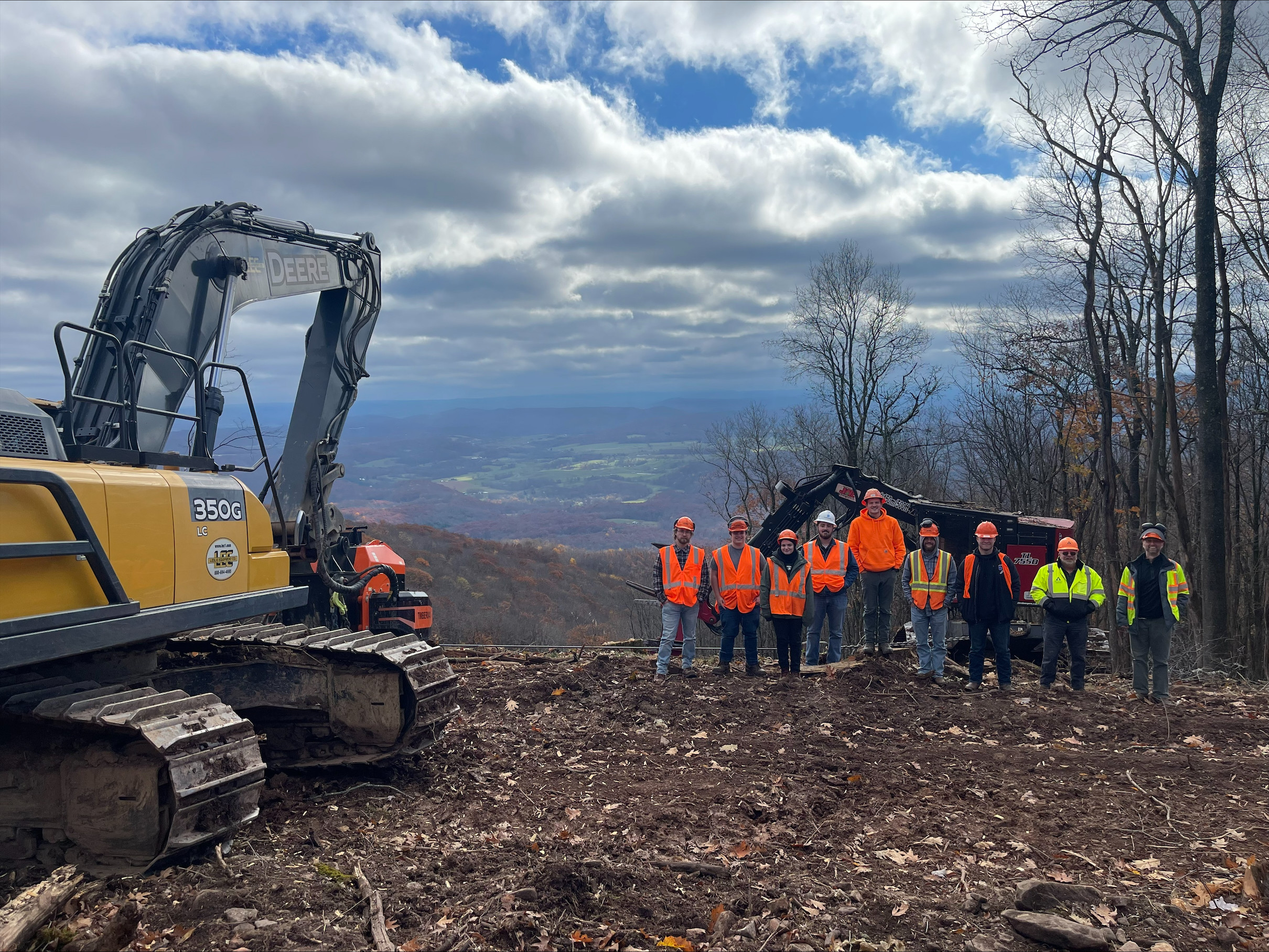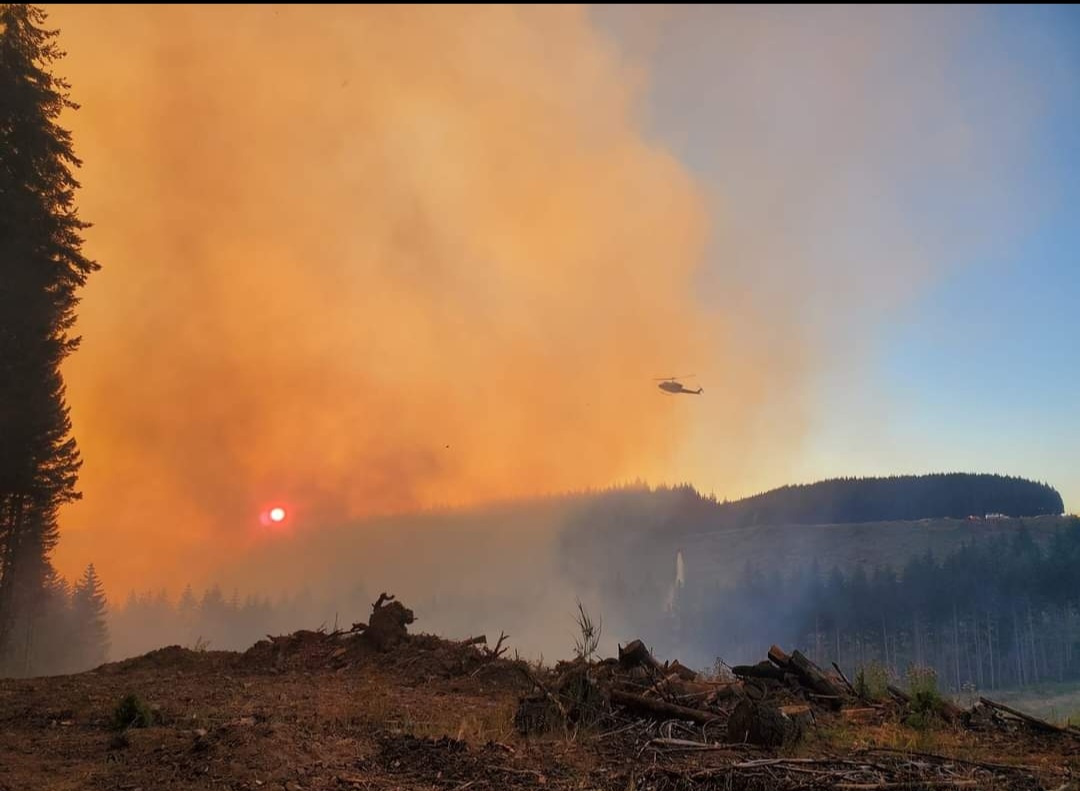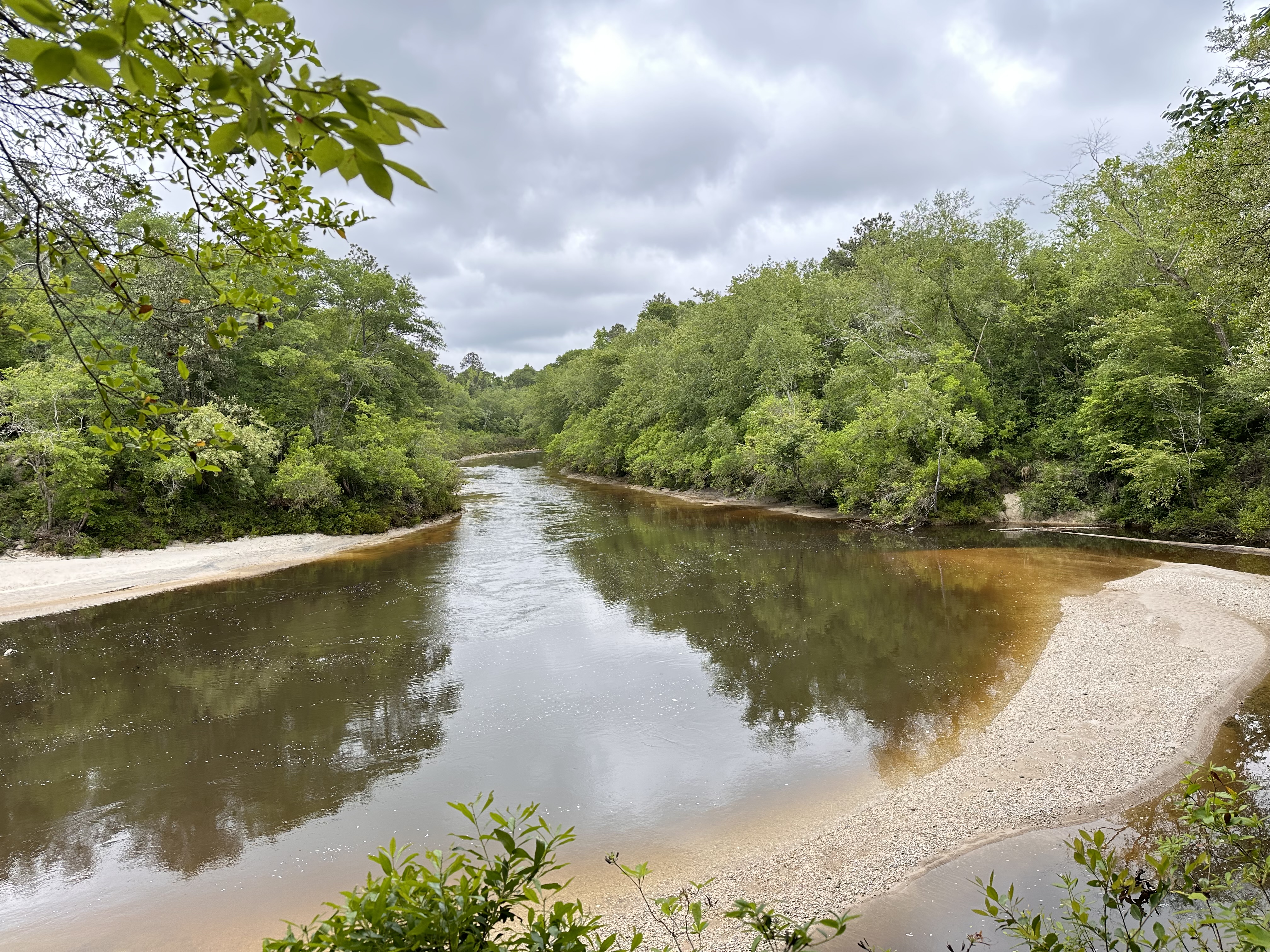
The tour group in front of a cable-assist system: A TimberPro TL755D feller buncher tethered to a TimberMax T20 winch, which is fitted on a John Deere 350G excavator. 'The expansion of our internship outreach is really beneficial to Weyerhaeuser and our industry as a whole,' Dan says. 'We’re bringing in some great talent, and we’re really excited about it.'
It’s a rare treat for college students to witness and examine state-of-the-art forestry technology up close. But that’s what seven Glenville State University silviculture students were able to do this fall on a field trip to our Cold Knob property in Greenbrier County, West Virginia.
The students embarked on a day-long journey across our land, immersing themselves in stands of timber ranging from tiny seedlings to majestic, mature trees. The highlight of the tour was an active cable-assist logging operation on sloped terrain, one of the few such operations in the state.
“Cable-assist logging is a game-changer for safety and operational excellence,” says Mike Moran, planning forester, who led efforts to bring the technology to Appalachia. “Forestry students won’t find an experience like this anywhere else.”
Mike helped coordinate tour stops for colleagues and tour organizers Adam Osborne, harvesting forester — who’s a recent Glenville State grad and interned with us prior to graduation — and Dan Abston, marketing manager, who graduated from Glenville in 1986 and manages our Northern Timberlands intern program.
Adam, Mike and Dan lead the students through a discussion about this mature stand of timber.
SEEING THE FOREST FOR THE TREES
The students and their professor, Dr. Brian Perkins, started the day with a safety briefing, donning hard hats and high-visibility vests. Adam and Dan taught them to use radios for communication as they traveled the active haul roads.
The group visited a variety of timber plots, ranging from a 3-year-old stand to 60-year-old plots, providing visual insight into the growth cycle of trees and how silviculture adapts for each age range.
“We have a lot of mixed-age select cut stands, and we operate on natural regeneration, meaning the trees reproduce on their own,” Mike says. “Because of that, our working forests here look different than those in other parts of the country.”
On another part of the tour, Adam (third from left), Mike (fifth from left) and Dan (third from right) explain growth rates of a clearcut.
TETHERED TO INNOVATION
Though these forests look different than those in the Pacific Northwest, the cable-assist logging innovation is one the West Virginia team has been able to replicate from their colleagues in Western Timberlands.
“I was excited to show off this technology to current students,” says Adam, who now supervises logging contractors and lays out harvest units. “I was once a student like them, visiting Weyerhaeuser land on a field trip with my timber harvesting class. That experience was invaluable.”
Mike notified our cable-assist logging contractor ahead of time that the students would be arriving. The group watched from a safe distance as a felling machine traversed the slope while tethered to an anchoring system at the top. This innovative system reduces safety hazards associated with hand-felling contract crews using chainsaws to cut trees on steep slopes.
“The crew paused operations so the students could safely get close to the equipment, which was really exciting for them,” Dan says.
The tour route included driving past several wind turbines to demonstrate how our land is used for forestry, energy, natural resources and recreation.
DEEP ROOTS OF PARTNERSHIP
Northern Timberlands has enjoyed a strong connection with Glenville for many years, and the team is in regular correspondence with faculty to conduct field trips and share internship opportunities.
“Glenville has a strong connection to the forestry industry as a whole in West Virginia,” Dan says. “Real-life exposure to forestry as a career is extremely valuable for students, and there’s nobody like Weyerhaeuser to give them that experience.”
The Northern Timberlands team works with other colleges and universities, too. Another recent field trip hosted undergraduate and graduate forestry and wildlife students from Virginia Tech.
“They get to see how our forestry practices actually enhance wildlife conservation efforts, and how these two focuses are intertwined,” Dan says. “That really resonates with young people who care deeply about the environment.”
NEW HORIZONS AHEAD
The team plans to broaden the pool of incoming interns by opening new communication channels between our businesses on the East Coast. That will allow outreach efforts to expand into schools in other states — such as Maine, New York and Tennessee — and bring additional students on field trips in different regions.
“These tours benefit us, too,” Mike says. “New employees who were interns come in with a broader base of knowledge about current innovations in our industry, and specifically what we’re doing here. That helps them hit the ground running and perhaps develop their careers faster than they would have otherwise.”


